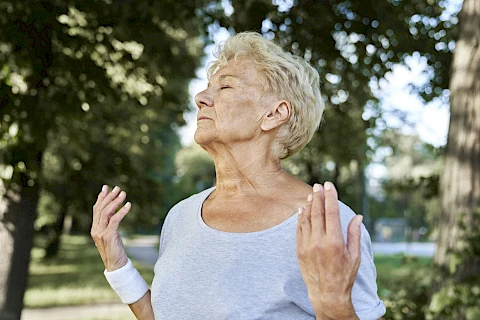
The issue of anxiety is common among seniors, making it an essential aspect of senior care that often gets overlooked. As caregivers, it's our role to create a safe, comforting environment for seniors, assisting them with not only their physical needs but their mental and emotional well-being as well. This article discusses practical techniques caregivers can employ to help manage anxiety in seniors effectively. We can provide the necessary support for our seniors through methods such as deep breathing exercises, guided imagery, and the promotion of open communication.
Anxiety in Seniors: What You Need to Know
Anxiety is a pervasive feeling of unease, such as worry or fear. While occasional anxiety is a part of life for everyone, persistent or severe anxiety may indicate an anxiety disorder. For seniors, anxiety is particularly challenging. The physical changes that seniors go through could exacerbate the symptoms of anxiety; conversely, anxiety could result as a reaction to these changes. Recognizing the symptoms of anxiety in seniors, such as excessive worry, restlessness, or difficulties in concentration, is the first step towards managing it effectively.
Techniques for Caregivers to Manage Anxiety in Seniors
Caregivers can employ a range of techniques to manage anxiety in seniors.
One of the most easily accessible methods is deep breathing exercises. Deep breathing is a simple yet powerful tool that can be used anytime and anywhere. It involves taking slow, deep, and conscious breaths, which calms the mind. As a caregiver, encourage your seniors to breathe deeply, helping them focus on the sensation of the breath entering and leaving the body and guiding them to slow down their breathing if they start to feel anxious.
Guided imagery is another valuable tool for anxiety management. It employs the use of mental images to evoke relaxation. A caregiver can guide seniors through peaceful, calming scenarios, such as imagining a walk through a serene forest or relaxing by a quiet beach. Guided imagery could help distract the mind from sources of anxiety and promote relaxation.
Lastly, encouraging open communication is vital. Often, seniors may not openly express their feelings of anxiety, primarily due to the fear of burdening others. A caregiver must create an environment where they feel comfortable sharing their feelings. Encourage them to talk about what is causing them distress, and always respond with empathy and understanding.
Professional Support and Resources
While these techniques provide benefits, seeking professional support is also crucial. Healthcare professionals can help develop personalized anxiety management plans that cater to the specific needs and circumstances of the senior. This plan could involve a combination of medication, therapy, and lifestyle modifications.
Several resources are available for professional support, such as the Anxiety and Depression Association of America(ADAA), which provides online information and resources related to anxiety disorders. Your local healthcare provider is also an excellent source of information and guidance.
We Want to Help
Managing anxiety in seniors is an essential facet of providing them with a high quality of life. As caregivers, we have the responsibility and the capability to make a substantial positive difference in their anxiety levels. Utilizing techniques such as deep breathing exercises, guided imagery, and open communication, in conjunction with professional support, can significantly improve their mental well-being.
If you reside in Tallahassee, Crawfordville, Monticello, Perry, or Madison and seek support for the care of your senior family member, don't hesitate to contact us today at Senior Helpers Tallahassee. We would love to discuss our services for seniors and their caregivers, such as Personal Care and Chronic Disease Care.